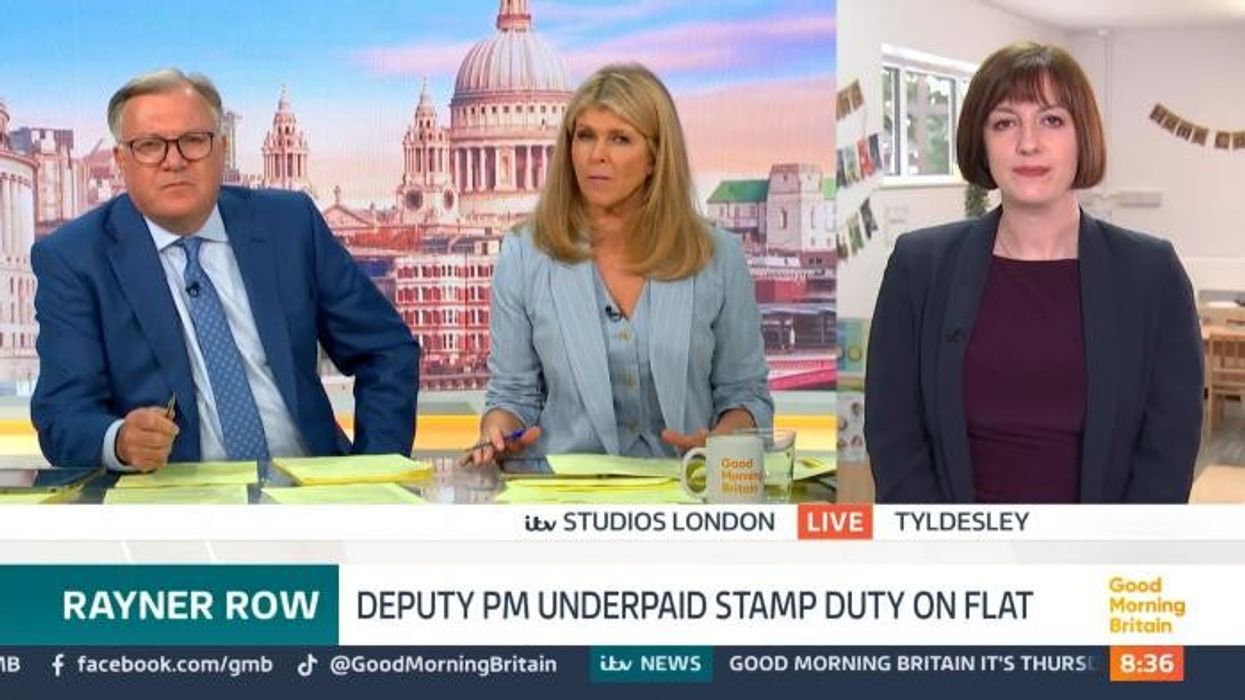It ended Angela Rayner's career but stamp duty is frankly barmy, says property expert
Property guru Jonathan Rolande says abolishing SDLT would inject life into the housing market, but questions if there's a viable alternative
Don't Miss
Most Read
Latest
There is no point sugar-coating it. Even in the disliked world of taxes, stamp duty is about as popular as an HMO in Mayfair.
For homebuyers, it's a kick in the teeth just when they're already stretched. Investors pay it, plus five per cent, restricting the appetite for refurbishing and rental supply.
For governments? Well, it's a reliable cash cow that's hard to ignore. Residential SDLT raised £8.6bn last year alone.
Thanks to Angela Rayner's political misfortune, the debate over whether SDLT should be consigned to the history book marked 'Window Tax' has never been more pressing, but to be honest, both sides have a point.
Critics argue, and they're not wrong, that SDLT is choking the natural flow of the housing market. How many times have I seen households put off moving because of the eye-watering cost?
Many run-down properties aren't being brought back into use because the figures don't add up when the tax is factored in – somebody buying an average-priced property to renovate will pay £17,000.
Downsizers stuck rattling around in family homes they no longer need. Growing families are squeezed into properties bursting at the seams.
It's not the only reason the property market is virtually broken, but it is a reason.

It ended Angela Rayner's career, but stamp duty is frankly barmy
|GETTY / PA
LATEST DEVELOPMENTS:
From an economic standpoint, SDLT is frankly barmy. Why tax transactions rather than wealth creation?
It's penalising people for doing exactly what we want them to do: buy and sell property.
And when fewer sales go through, entire industries feel the pinch. Not just estate agents but carpet fitters, builders, removal firms, decorators, and conveyancers – the moving sector supports millions of jobs.
But there's a big political issue. In 2023-24, SDLT raised £8.6 billion for the Treasury, which would need to come from somewhere else if SDLT disappeared overnight.
 Jonathan Rolande shares his advice | Jonathan Rolande
Jonathan Rolande shares his advice | Jonathan RolandeWhat would the alternatives be? Would they be fairer and popular? I suspect not...council tax hikes, income tax increase?
All are politically toxic, and in many cases, more punishing for ordinary households.
Yes, SDLT, for all its faults, but it has one thing going for it: most people only pay it a handful of times in their lives. It's less intrusive than daily taxation, even if it hurts like hell when it hits.
So, should SDLT be scrapped? In fairness, the case against it is compelling. Abolishing it would inject life into the housing market, benefit buyers and sellers, and give the broader economy a huge boost.
But, and it's a big but, unless there's a credible plan to replace that £8.6 billion, abolition remains pie in the sky.
No chancellor is going to create a multi-billion-pound black hole without a clear alternative.
So SDLT remains with us, not because it's perfect, but because no government has yet found a way to replace the revenue. The devil you know.
Until someone comes up with a better solution, we're stuck with this flawed but financially essential tax.
The housing market will continue to bear the burden, and buyers will keep paying the price. Literally.
Jonathan Rolande is a property expert and the founder of House Buy Fast. For more free advice, visit www.jonathanrolande.co.uk.











